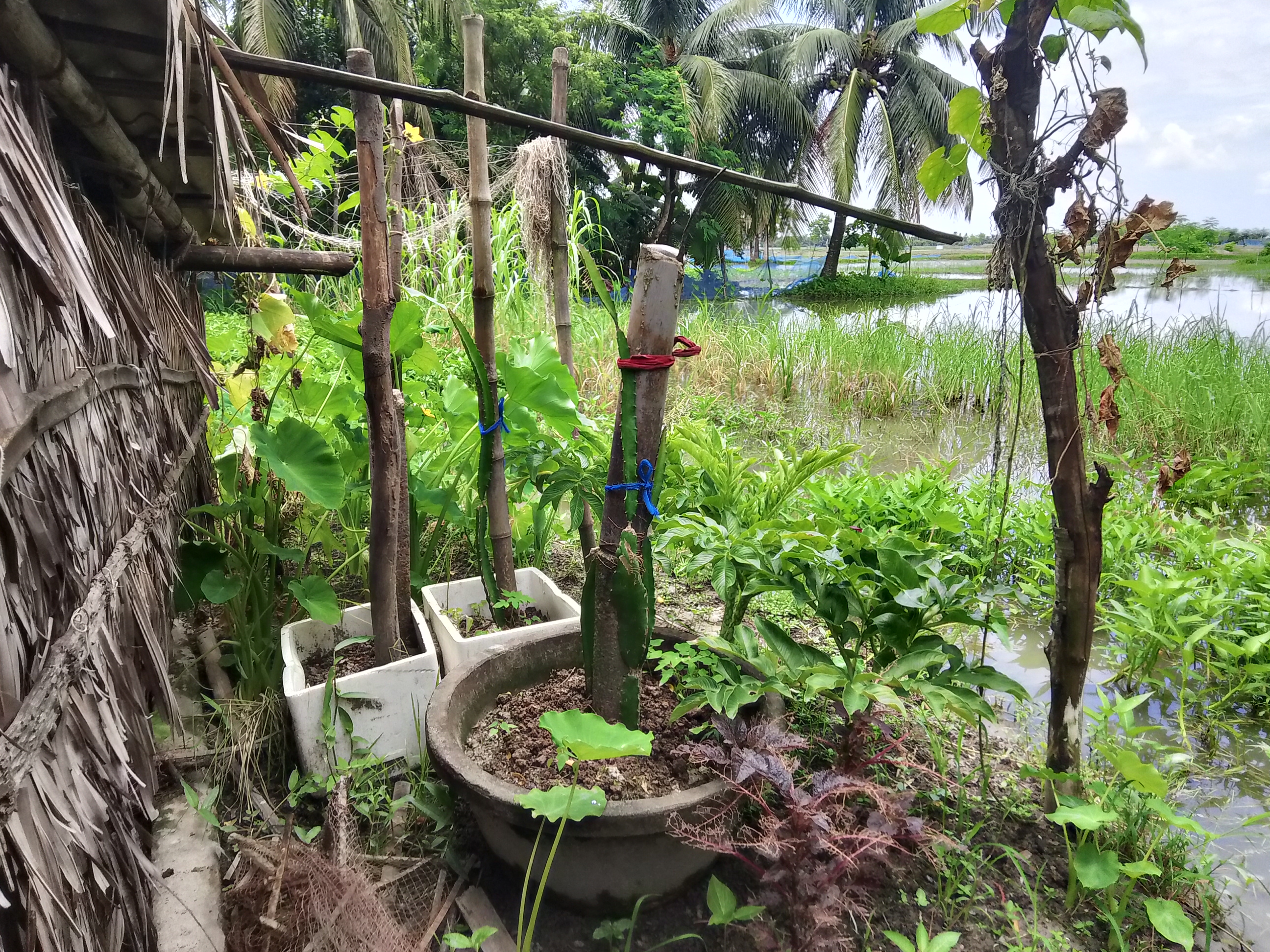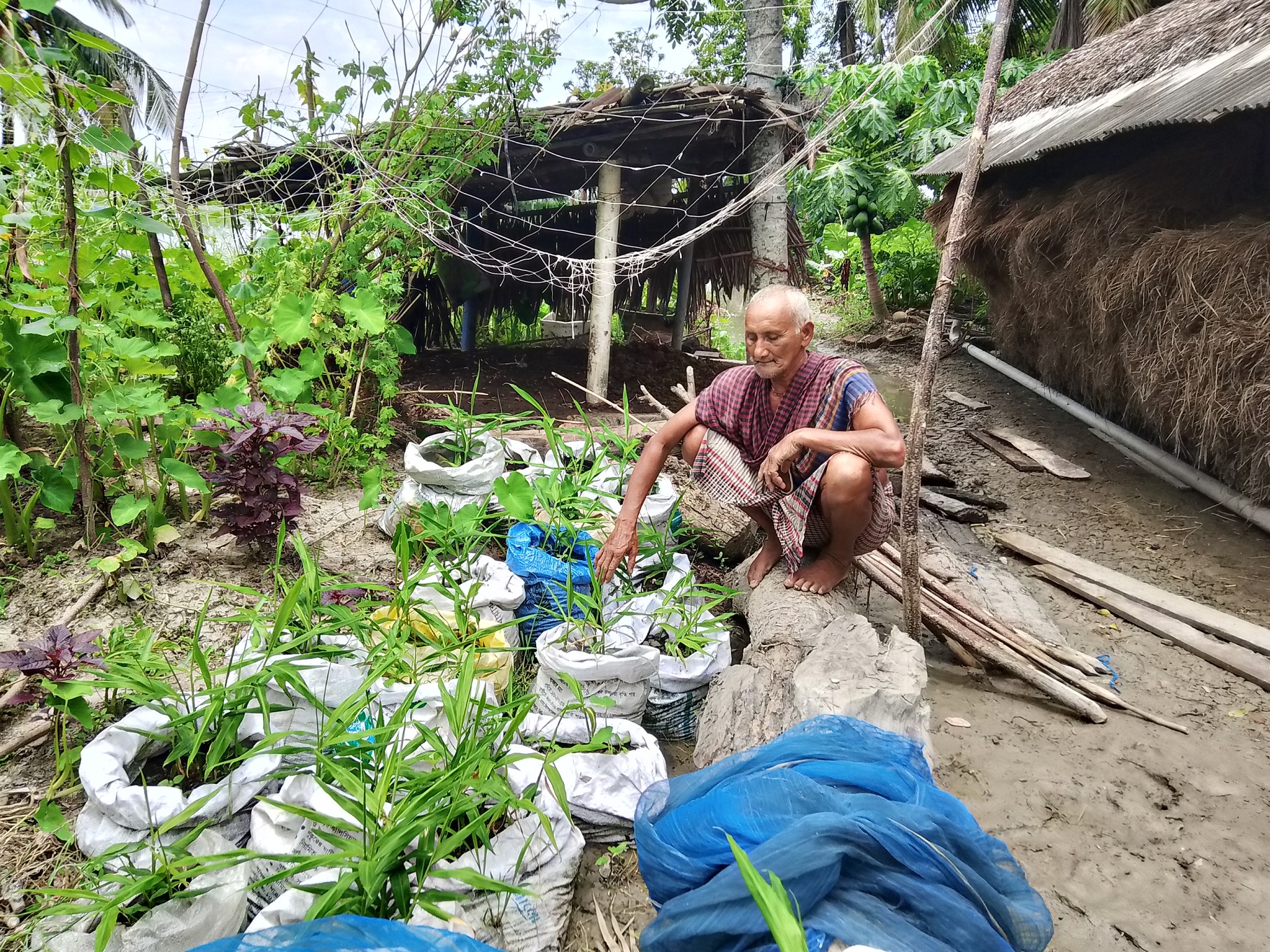Monika Paik, Shyamnagar, Satkhira
Subhash Dewan (75), a senior farmer from Khaskata village by the Chuna River in Burigoalini Union, Shyamnagar Upazila, Satkhira, lives in a climate-vulnerable coastal region. The village, though agriculture-based, faces frequent challenges due to salinity, cyclones, tidal surges, and fragile embankments.
Subhash began farming with his father at the age of six and still continues. He owns 3 bighas of agricultural land where he cultivates rice and shrimp and grows vegetables on 8 kathas of homestead land. He lives with his wife, son, and daughter-in-law. He maintains a year-round homestead garden with fruits like mango, jackfruit, guava, hog plum, banana, jamun, coconut, and palm.

During the monsoon, he cultivates long beans, ridge gourd, cucumber, taro, yam, Malabar spinach, sweet pumpkin, bitter gourd, and snake gourd. Based on suggestions from BARCIK, he also grows ginger in sacks.
Subhash mentioned: “I met BARCIK in 2025. Through their learning center in Khaskata, I learned about seed conservation, vermicompost, and organic pest control. Earlier, I kept failing at composting because my earthworms would die. With help from BARCIK staff, I restarted properly and succeeded.”
,
He went on saying “I used to apply raw cow dung directly to the field, which I later realized was harmful. Now, instead of spending money on chemical fertilizers, I feed the cows and use their dung to make compost that improves soil fertility.”
In the salinity-affected coastal south, sustainable, low-cost agriculture using vermicompost is a promising solution to protect both productivity and the environment.
